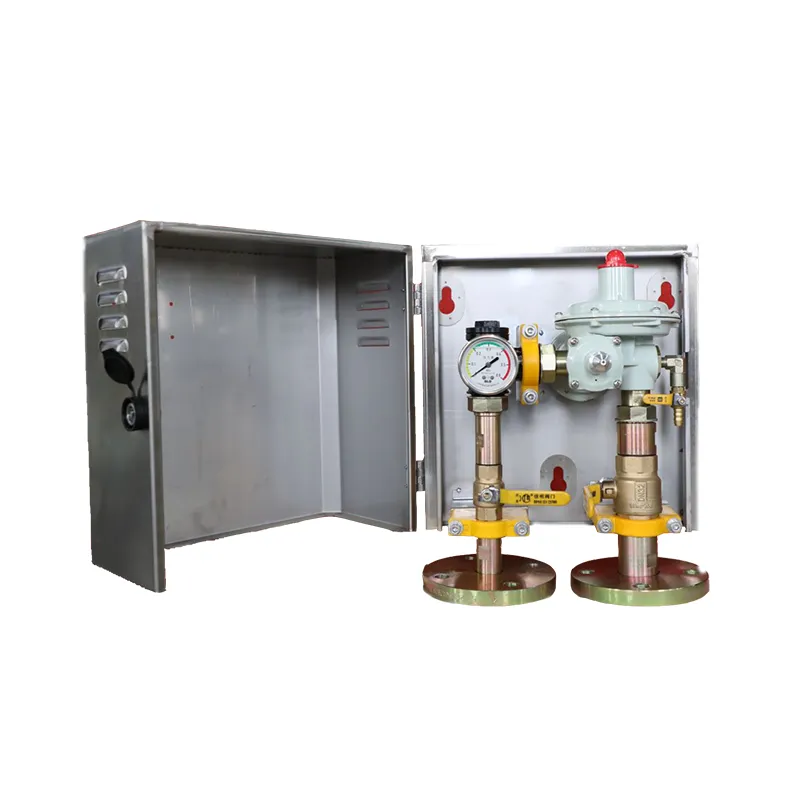
Sep . 28, 2024 17:19
Back to list
Electric Valve Control System for Efficient Automation in Industrial Applications
Understanding Electric Valves The Role of Electrical Actuators in Modern Applications
Electric valves, or electric actuated valves, are crucial components in various industrial and commercial systems. They function as pivotal devices for controlling the flow of fluids - whether gases, liquids, or slurries - by using electric power for actuation. This article explores the mechanics, applications, advantages, and considerations regarding electric valves.
What is an Electric Valve?
An electric valve typically consists of a valve body, a valve actuator, and a positioner. The body can be of various types—such as ball, butterfly, gate, or globe—depending on the application requirements. The actuator, which is the heart of the electric valve, converts electrical energy into mechanical motion to open or close the valve. The positioner provides feedback to ensure that the valve positions accurately according to the required setpoint.
Electric valves operate on a straightforward principle when an electrical signal is sent to the actuator, it moves the valve to a desired position. This can be fully open, fully closed, or anywhere in between, depending on the need for flow regulation.
Applications of Electric Valves
Electric valves find widespread usage across numerous sectors
1. Water Treatment Plants Electric valves manage the flow of water and chemicals in various stages of treatment and distribution. 2. Oil and Gas Industry They control the flow of crude oil, gas, and refined products across pipelines and processing facilities.
3. HVAC Systems Electric valves regulate the flow of air and refrigerants in heating, ventilation, and air conditioning systems, ensuring comfort and energy efficiency.
4. Food and Beverage Industry They are employed to control the flow of ingredients and ensure compliance with safety regulations in food processing.
5. Pharmaceuticals In this highly regulated industry, electric valves help maintain precise control over fluid motion, which is critical for product safety and efficacy.
6. Power Plants Electric valves control the flow of steam and water in boilers and turbines, enhancing operational efficiency and safety.
.
Electric valves offer several significant advantages
صمام كهربائي

- Precision Control They allow for accurate flow regulation, making them ideal for processes that require meticulous control. - Remote Operation Electric valves can be operated and monitored from a distance, facilitating the management of hazardous or inaccessible locations.
- Integration with Automation Systems Electric valves can be easily integrated into automated control systems, enhancing overall operational efficiency.
- Reduced Maintenance Compared to pneumatic and hydraulic valves, electric valves typically require less maintenance due to fewer moving parts and simpler construction.
- Energy Efficiency They consume power only when changing positions, leading to lower energy consumption in applications where the valve does not frequently operate.
Considerations When Choosing Electric Valves
While electric valves have overwhelming advantages, there are several factors to consider when selecting them for a specific application
1. Power Supply Ensure that the availability and type of power supply are compatible with the electric valve's requirements.
2. Operating Environment Evaluate the environmental conditions, such as temperature, humidity, and exposure to corrosive substances, which may affect valve performance.
3. Flow Requirements Clearly define flow rates and pressure levels to select the appropriate valve size and type.
4. Response Time Consider how quickly the valve needs to react to control signals, especially in applications that require rapid changes in flow.
5. Control System Compatibility Ensure that the electric valve is compatible with the existing monitoring and control systems.
Conclusion
Electric valves serve as essential components in diverse applications, facilitating the control of fluid movement efficiently and precisely. Their growing popularity reflects their adaptability and effectiveness in modern industrial processes. As technology evolves, the innovations surrounding electric valves are likely to expand even further, reinforcing their significance in various sectors. Whether for controlling water in treatment plants, managing gas flow in pipelines, or ensuring comfortable environments in HVAC systems, electric valves are indispensable in today’s technologically advanced landscape.
Latest news
-
Safety Valve Spring-Loaded Design Overpressure ProtectionNewsJul.25,2025
-
Precision Voltage Regulator AC5 Accuracy Grade PerformanceNewsJul.25,2025
-
Natural Gas Pressure Regulating Skid Industrial Pipeline ApplicationsNewsJul.25,2025
-
Natural Gas Filter Stainless Steel Mesh Element DesignNewsJul.25,2025
-
Gas Pressure Regulator Valve Direct-Acting Spring-Loaded DesignNewsJul.25,2025
-
Decompression Equipment Multi-Stage Heat Exchange System DesignNewsJul.25,2025

